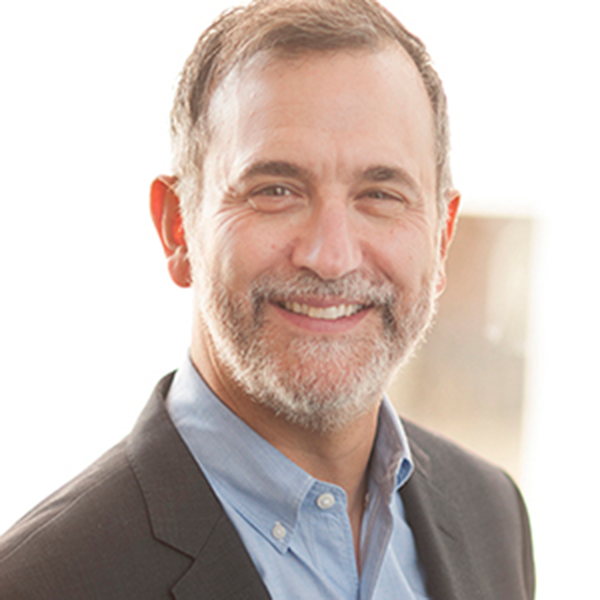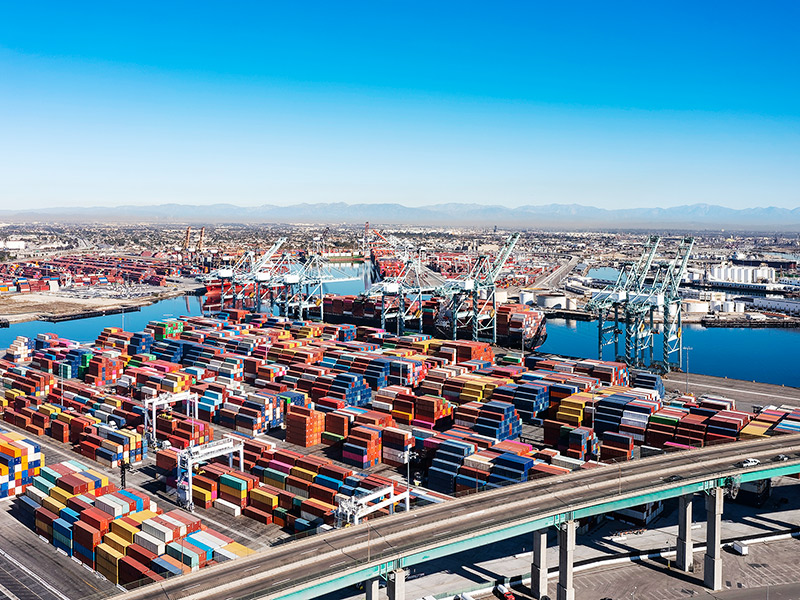Guests
-

President and CEO, BSR
Aron is recognized globally as a preeminent authority on just and sustainable business. In addition to leading BSR, which has grown substantially throughout his tenure as President and CEO, Aron advises senior executives at BSR’s 300+ member companies and other global businesses and partners on the full spectrum of environmental, social, and governance issues.
Aron joined BSR in 1995 as the founding director of its Business and Human Rights program. He later opened BSR's Paris office in 2002, where he worked until becoming President and CEO in 2004. Aron has served on advisory boards to CEOs at AXA, Barrick Gold, Marks & Spencer, Nike, Recruit Holdings, SAP, Shell, and he serves as a director of the We Mean Business Coalition and RISE.
Aron speaks frequently at leading business and public fora and is widely quoted in top-tier media, such as the Financial Times, Le Figaro (France), The New York Times, The Wall Street Journal, Axios, and Politico. He is co-author of the book Sustainable Excellence: The Future of Business in a Fast-Changing World, which spotlights innovative sustainability strategies that enable business success.
Prior to joining BSR, Aron practiced law in San Francisco and worked as a journalist at ABC News in New York. He holds a BA from Tufts University and a JD from the University of California, Berkeley.
Recent Insights From Aron Cramer
- A Message from Aron Cramer, BSR President and CEO / April 30, 2025 / Blog
- Meeting the Moment Together: BSR’s Partnership with You / April 10, 2025 / Blog
- Navigating Uncertainty: The Impact of U.S. Tariffs on Sustainable Business / April 8, 2025 / Blog
- Navigating Change: How Business Leaders Can Respond to a Changing Policy Environment / February 20, 2025 / Blog
- A Year of Uncertainty: Maintaining Progress Amidst a Battle of Ideas / February 13, 2025 / Audio
-

Managing Director, Marketing and Communications, BSR
David leads BSR’s marketing and communications initiatives, working with a global team to amplify the organization’s mission and showcase its activities, impacts, and thought leadership to members, partners, and the wider business and policy community.
David previously worked for The B Team, a group of global business and civil society leaders working to catalyze a better way of doing business for the well-being of people and the planet. Throughout his 20-year career, he has worked with businesses and nonprofits in economic development, public health, and sustainability to define and communicate their purpose and impacts. .
He has built high-impact communications campaigns for a collaboration to improve maternal health in Zambia and Uganda, driven top-tier media coverage for a major economic development project in upstate New York, and helped strengthen parliamentary capacity and voter education efforts in South Africa and Zambia. He began his career as a newspaper reporter.
David earned his M.A. from The Elliott School of International Affairs at the George Washington University and his B.A. in Journalism and Political Science from Michigan State University.
Recent Insights From David Stearns
- A Year of Uncertainty: Maintaining Progress Amidst a Battle of Ideas / February 13, 2025 / Audio
- A Conversation with Mario Abreu, Group VP, Sustainability, Ferrero / February 6, 2025 / Audio
- A Conversation with Darsh Myronidis, Group Director of Sustainability, Virgin / January 8, 2025 / Audio
- Reflections from Climate Week NYC: The Tension Between Pragmatism and Ambition / October 1, 2024 / Audio
- Navigating U.S. Election Uncertainty: A Call to Action for Sustainable Business / August 1, 2024 / Audio
Description
Following his recent blog about the “Ten Big Questions Facing Sustainable Business Leaders in 2025,” BSR President and CEO Aron Cramer chats with David Stearns about the EU Omnibus package and its potential impact on regulatory requirements, why sustainability goal setting remains a valuable exercise in an environment of political pushback and uncertainty, the future of COP (with or without U.S. involvement), and why sustainable business must shift the language it uses to describe—in tangible ways—its connection to improving people’s lives and wellbeing.
Listen
Transcription
David Stearns:
Welcome to BSR Insights, a series of conversations on emerging and cross-cutting business, economic, and social issues. Drawing on BSR's expertise from more than three decades of leadership and sustainable business, we'll help practitioners and decision-makers to navigate today's increasingly complex world. I'm your host, David Stearns.
Well, I'm happy to welcome back. Aron Cramer, president and CEO of BSR. Welcome again, Aron. Nice to see you.
Aron Cramer:
Good to see you too. Good to be with you, David.
David Stearns:
So, Aron, I'd originally hoped that we would chat today about the curtain raiser on the ten big questions facing sustainable business leaders in 2025. It hasn't even been a month since that was published and while we're definitely going to come back to that, because I think there's a lot in there that's important and relevant, I don't want to whistle past the graveyard here and not acknowledge that there's quite a bit of drama unfolding in the world around us.
In the last few weeks, the new president here in the United States issued an avalanche of executive orders that have challenged and/or reversed legal policy and economic factors that impact core elements of the sustainability agenda, including climate change, diversity and inclusion, international cooperation, even reporting and governance.
And then more recently, the administration has really upended the federal bureaucracy. It's been dismantling branches of the government from Treasury to the EPA to USAID. There's been little to no response as of yet from Congress. Some decisions have been challenged in court, some have been stalled with court injunctions, but it seems likely that this is the beginning of what might be a period of some uncertainty for the country and of course for business as well. So, before we dive in, what are your thoughts? What advice do you have for businesses right now?
Aron Cramer:
Well, you used the U-word David, uncertainty, which I think is the right place to start. So I think certainly in the United States, Washington has been upended with a lot of twists and turns. How many of them end up staying in force, we'll have to see. There's a raft of other things going on as well, which also present uncertainties.
The other thing that's happened in the first 38 days of the year is the arrival of DeepSeek, which has again given us a different view on how AI is evolving, how rapidly, and in this case, how cheaply and how inexpensively. But obviously, technology continues to change.
There's political uncertainty outside of the United States as well. Europe is going through quite a lot of change. German elections coming up very, very soon that will usher in a change there, Most certainly, same in Canada. There's geopolitical conflict, the tariffs that arose, but also tensions between the United States and China, but also other countries including claims of annexation of, I think at last count, four different sovereign states by the United States. Hadn't had that on my bingo card.
On the environmental side, I grew up in Los Angeles and I saw my hometown, two neighborhoods basically burn to the ground. And we've always had wildfires in California, but having them in January at this scale is completely novel. In the month of January, apparently, temperatures were 1.75 degrees Celsius above pre-industrial levels. Climate scientists don't know what to make of it, and climate scientists are worried that their models are not proving to be particularly accurate. So, all of these things present a lot of uncertainties, and I think that these are all things that are directly relevant to business. So, I was talking with our board chair a couple of days ago and he said, "Well, when it's foggy, you have to drive slowly." And that's one way to think about it certainly.
But I think the other thing to do is to remember why the agenda around just and sustainable business is here in the first place. And it is here in part because of all these changes that we're seeing. It can help companies navigate all of this change. And so at a high level, I think yes, there's uncertainty, but it's important to remember what ongoing commitments there are and why they're there. Even more importantly, why they're there because I would argue that they're more important than ever, even if they may be more challenging to act on right now.
David Stearns:
So we'll come back to some of the comments on commitments a little bit later, but I want to come back now to the difficulty of acting and it certainly becomes more difficult for business to act when they are facing an onslaught of actions, whether it's rhetoric or more tangible actions that are essentially attacks on sustainable business. And I guess the question, is there a red line for business when it comes to this? Is there a red line for business when it comes to misinformation, disinformation where they say, "We're not going to let this go unchallenged, we're going to speak out against it." Is there a red line when it comes to the rule of law which companies depend on for a stable operating environment?
Aron Cramer:
So, in this instance, I will speak largely in the American context and say that there are a number of things that are happening, and I just want to reinforce, BSR is not a partisan political organization. We're just not. We try to focus on what we are for, not who we are against, and so that's the frame of mind I have when I think about this. That said, some of the foundational elements of a healthy and open society are facing a real challenge.
As you say, USAID, the America's bilateral donor agency, is effectively being dismantled. Many companies, many of our member companies work with USAID because they want to make a difference in the world and because USAID projects contribute to more stable and constructive operating environment in many parts of the world. Questions about science and pharmaceutical companies rely on science. All of us for public health rely on science and in some quarters of the government, there are questions being asked that deviate from the overwhelming majority of scientific understanding and whether it's on human health or climate, what have you.
And then, the media. The media and I began my career as a journalist. I know you did too, David. The media is facing an onslaught of rhetorical attacks but also legal attacks. So I won't go on, but I will say that it's like the Joni Mitchell song, "Big Yellow Taxi.” You don't know what you've lost till it's gone.
Some of these things are core, foundational elements of a healthy and open society, and I think businesses are going to have to decide where their red line is on issues that are relevant to them. I want to be a realist. A lot of companies have moved away from responding to all sorts of public issues, found that that was a little bit of a no-win situation, and I'm sympathetic to that. But I think having the pendulum swing in the opposite direction and not standing up for core principles. I think that's a losing proposition over time that will interfere not only with healthy and thriving societies, prosperous societies, but also the climate for business.
David Stearns:
So you mentioned those comments were primarily US-focused, and I do want to make sure that we're coming back to some of BSR's bread and butter. So just to shift beyond the shores of the United States and to some of the observations from your curtain raiser. Last year, the EU announced that there were plans underway to create an omnibus package that would basically streamline reporting requirements across the three EU green deal laws; the Taxonomy, the Corporate Sustainability Reporting Directive, (CSRD), and the Corporate Sustainability Due Diligence Directive (CSDDD). And we expect a draft proposal to be released later this month in February. Curious to hear your thoughts on what is your sense, are regulations in Europe likely to be relaxed? Will they be delayed and what's the strategic purpose and value of these regulations for companies?
Aron Cramer:
Two parts to the question. The first is a little more practical. The second a little more conceptual. They're both important. I think it will not be a surprise if some of the requirements are, let's say, streamlined. And we have a new European Parliament in place and new commission, and a lot of businesses when faced with the realities that they've been dealing with about compliance have found that a lot of it is cumbersome and expensive and so on. So, I think that is going to lead to probably some deadlines being extended, and I'll use the word streamline, some requirements perhaps being streamlined or reduced, and so on. Some of that is okay. Too much of it is going to be problematic. And that leads to the second part of your question. The Green Deal didn't fall from the sky. The Green Deal is here because increasingly there is a recognition of how, I'm going to use the three letters ESG, requirements, ESG considerations are important.
They're important for resilient business, they're important for innovative business. They're important for businesses to have a structural way to anticipate the future and communicate publicly about what they're doing. And there's a rigor that's involved in it that I think has really sharpened companies thinking about what their priorities are and how they go about them. So I think maybe there will be some changes. I hope they don't go too far because at the end of the day if we didn't have any of these things, I think we'd need to invent them because these are considerations, whether it's on climate or diversity or nature, biodiversity, human rights, and looking at one's supply chain. These are all valuable exercises for companies and so I think companies want and need to do these things anyway.
And so my hope is that if the regulations can be made a bit better, terrific, but we need them. They're valuable, and companies have already invested a great deal of time and money in preparing for them. If they're changed too much, if there's chaos in the system, that's going to create its own problem. So my view is that these things are valuable, they're of strategic importance. Some streamlining may well be beneficial. We'll have to see what the details are, but we need this architecture. We need it now.
David Stearns:
Thanks for that, Aron. And I know that our colleague, Paloma Muñoz Quick is tracking these things quite closely along with her colleagues on our regulatory task force and folks can certainly stay up to date on the BSR website, the BSR blog for more insights on that. Paloma just recently published something on the omnibus, which I think people will find quite interesting.
Now, alongside the regulation side, we have the ambition side, and we know that many businesses missed their sustainability targets on important issues ranging from scope three to nature to diversity and have endured some criticism as a result, whether it's from customers, from employees, from investors, and from other key stakeholders.
Now there's a potential of a further retreat in the face of the political pushback that we've talked about. So in light of this, it's easy to understand why some companies might be rethinking whether or even how to set new goals for 2030 and beyond, but I feel like you have a different take on this that goal setting is still important. So, can you tell us a little bit about why you think sustainability goal setting is still a valuable exercise in light of all of this?
Aron Cramer:
Yeah, so if we go back to the start of what we were calling the decisive decade at the beginning, now feels like the disruptive decade, but there was a rush of commitments at COP 26 in Glasgow. A lot of commitments in the wake of the murder of George Floyd around DEI on a whole range of topics. And I welcome that. I think that all reflected a degree of ambition that I think we know we need if the world's economy is going to deliver for people and the environment. If there was a point though, a couple years ago, where it became clearer and clearer and clearer that many of those goals were not going to be reached. Some of it I think had to do with changes in the world. Just look at the tech companies which had very ambitious climate goals and then AI began to require a level of compute power that was laying waste to their climate goals. So that was maybe not fully anticipated at the time.
There's been a legal pushback in the United States against DEI, but mostly companies learning this stuff's really hard. And on scope three, there's so many dependencies in the system that achieving those goals has been hard. Now, goals remain very important. Businesses set goals on everything. I don't know why sustainability would be any different, so I think the goal-setting process remains really, really, really important. I welcome if there's increased rigor coming into next generation of goals running from say 2026 to 2030, great. Let's do that. Let's learn from experience and set goals that are realistic stretch goals. There are two ways that I think the caution gets us into trouble. One is that there is a backlash, again, particularly in the United States against DEI. Some of it's driven by court decisions. Companies have no choice but to comply with the law, but let's not throw the baby out with the bathwater. We do need progress on diversity and inclusion. By the way, at the recent Deloitte Survey, global survey said that 63% of employees would like to see their companies... think their companies should be doing more on both climate and diversity. So that's really interesting.
And some of the pushback against these goals is political in nature. It's because there are voices that don't want to see action on climate. Don't like the fact that our societies are becoming more diverse, but our societies are becoming more diverse and climate is a clear and present danger to people, their lives, their livelihoods, and our economy. So we need ambition. I would say over the last year or so, I have seen a tug of war inside many companies between pragmatism and ambition. Both are important. They can coexist. I would imagine we are going to see events... Right now pragmatism so-called has the upper hand and ambition has taken a little bit of a backseat. I would guess, and I can't predict when or where, or how, but there will be events in the world that will remind companies why the ambition is so important.
And so that's one message I would leave for companies in general. There's so much going on in the news right now, but don't assume that today is going to look like tomorrow, let alone what we're seeing six months from now, let alone ten years from now. So I think companies, one of the best aspects of sustainability, is it asks companies to think about how the world is evolving and to think for the medium and long-term, and not just the next week, the next quarter, or the next news cycle.
David Stearns:
Certainly one of the most important flag bearers for the ambition, but also for the type of scenario planning and thinking longer term that you're thinking about. One of the most important players there is the chief sustainability officer. And I know that BSR has spent a lot of time, yourself and other colleagues, over the last several months talking with CSOs from around our membership about how their role has evolved. And we've seen, we've certainly heard about a significant increase in professionalization, for example, in that position. How do you see it evolving? Do you feel like they'll be playing more defense or offense seeking to preserve their gains, or is there still this sort of appetite and stomach for continuing to try to push forward on that ambition?
Aron Cramer:
Yeah, it's a really important question David. We interviewed, as you alluded to over 30 chief sustainability officers last fall. And we actually went back to about half of them after the US election to see if their thinking had changed. And we came up with three archetypes in the paper we produce, which is on our website, highly recommend it to people. Three archetypes: the steady manager, the strategic integrator, and the change agent. And those all speak to levels of ambition. They're a little bit different. I think that people we talk to would say that many of them aspire to be the change agent, and sometimes that's possible, sometimes that's not. So there's a bit of a continuum. I do think the reality right now is there is a little bit of defense and someone we talked to said it's a little like a Marvel superhero, the sustainability defender at a time when the forces are arrayed against sustainable business. I'm here to protect the franchise, not the Marvel franchise, by the way, sustainability. And I think there's some reality to that.
From talking with a lot of the people we work with in just the World Economic Forum two or three weeks ago, number of chief sustainability officers there, they are playing defense right now. Corporate agenda is very busy. There is pushback. Boards are asking different questions. So I want to be realistic. But I think the thing that if I could boil it down to one thing, it's... Well, two things actually. Chief sustainability officer does two key things. One is anticipates and makes sense of a changing world and brings that into business to help make the business better and deliver value for society. In one sentence, that's how I would describe the role, and in that way, it hasn't changed from what I think it ought to have been five years ago or what it ought to be five years from now.
David Stearns:
Let's pivot quickly over to another conversation around ambition. But this is ambition and where some of the foundations of the ambition rest and in some cases that is in international cooperative agreements, which many companies have aligned their ambition. Many companies, of course, set their goals to be aligned with the Paris Agreement and the sustainable development goals. So I want to talk a little bit about the former, the Paris Agreement. With the new administration, it has withdrawn the US for a second time from the Paris Agreement, and there's been some debate about whether it's better for COP 30 coming up later this year to have the US in or out. I'm curious to hear, what do you think about that question? Do you think the world is better off moving ahead without the United States? And in either case, will COP 30 herald the demise of COPs as we have known them?
Aron Cramer:
In the best case, the United States would be there as an important and constructive leader in the COP process. The United States is the world's largest economy. It's also the world's number one historic emitter. And so of course, I would like to have the United States playing a crucial role in COPs. I think this administration is not bought into the very concept. So given that COPs run on consensus, in some ways, it might be better for the United States not to be there. If it's not going to be constructive, it can do some damage to the COP process given the need for a consensus. Even with that, however, just as two relatively large countries, Indonesia and Argentina, have either suggested or stated that they're going to pull out because following the lead of the United States, which honestly I think provides a convenient excuse for some countries that may not want to be very active. That's not good because that creates a certain negative momentum that runs the risk of really undermining the COP process.
Now you ask an important question about COP 30 and we'll see what it delivers. I think the reality is after 2024 that the climate COP, the nature COP, and the land COP did not reach their goals. They were not really great. They did not produce really great outcomes. And I think it is an open question about how viable the COP process as it is currently constituted continues to be. Now if you conclude that it's not really working, there's a second question which is just important, which is what, if anything, can replace it. And to that, I do not have a good answer. I think it's maybe the COP process is a little bit like the famous saying that Churchill had about democracy, “It's the worst system except for all the others.” I would not want to see a world without COPs, but I would very much like to see the COP process reformed so that we can get more ambitious outcomes that move us more quickly and so on.
And this is when we talk about red lines for business, one of them is do you believe in international cooperation on shared challenges or not. And if you do, and I hope companies do, it may be time to speak up about that because the world gets very messy for companies very fast if there is just chaos and confusion in the global community about addressing things like climate and biodiversity that no nation, let alone any single company can possibly address successfully. So again, I think we're playing a little bit of Russian roulette here with some important processes. And I would hope that business will use its voice and its influence to help reinforce the importance of not only the climate COP but other forms of international cooperation.
David Stearns:
Well, that's actually a great segue to the point about the way business uses its voice to one of the last questions I wanted to ask you, Aron, which is, alongside all of these efforts, whether it's ambition setting by companies, whether it's regulatory frameworks to ensure that progress is real and tangible, whether it's international cooperation. At the end of the day, it's all about helping to create a world where people are able to thrive within our planetary boundaries. And you mentioned recently that one of our members had commented to you that when middle-class families are struggling to keep up, our ideas and sustainability sound a bit like empty slogans. And as a communicator, that's a pretty sobering comment. When you consider that the essential promise and intention of our work is to create an economy that provides opportunities for everyone to thrive while protecting biodiversity, while protecting ecosystems.
And it's obviously not about messaging and communications. We've got to deliver progress that actually touches people in tangible ways, first and foremost. But the way we build support for this stuff with business is also an important ingredient. So I guess the last question would be how can we talk about sustainability in a way that will resonate more with the general public and demonstrate in a credible and convincing way that these efforts are actually going to improve people's lives and wellbeing? Because I think if we don't crack that nut, we're really waging an uphill battle here.
Aron Cramer:
There's been increasing recognition that we're losing the battle of ideas. We who believe in just and sustainable business are losing the battle of ideas with large segments of the population. Certainly true in the United States and in Europe. I think it's a little bit different in other parts of the world, context is very different. And I think we need to look in the mirror and realize that some of the language that we use just doesn't resonate. I'm trained as a lawyer. I practiced law. Lawyers have a language unto themselves that no one outside law really understands or frankly cares to understand. I think that the same thing can be said of those of us who work on sustainability and so I think we need to bring the public along. We need to bring business leaders along, and we need to bring public officials along, and to do that, we've got to address things that resonate with them.
So what are some examples? You talk about jobs and livelihoods and human health and food safety and all of these things that grow out of commitments to sustainable business. And so I think we just simply need to do a better job of connecting the dots in terms of how our economy will run better with less volatility and more opportunity for more people. And also, be honest that some of the transitions we're going through are disruptive, and I think we need to be honest about that and sympathetic about that.
There's a reason why people believe that in the United States, their gas stove is going to be taken away or they're going to be forced to sell their car, and so on. So we need to combat all of the misinformation that's out there as well and paint a clearer picture of what a better future looks like and make clear that it's not just for the wonks like us who spend our days working on sustainability, but the average person who is trying to get through the day and provide support for their kids and see a lot of change that makes them very scared and very wary of what the future is going to bring.
One of the things that gives me a great deal of sadness is I think the American people have traditionally believed in the future. Not so good about learning about our past, but very good about believing in the future. I think a lot of people have lost that belief in the future. For me, the future that sustainable business can bring is immensely better in terms of human thriving. Simple as that. But we haven't really conveyed that very, very well, and I think we can and must do a better job of that.
David Stearns:
Well, I think that's a great place to end it right there, Aron. I really appreciate your time again, and I think we'll probably be having a few more of these chats as the year goes on, but any final thoughts before we sign off?
Aron Cramer:
Just remember, don't get caught in the dailiness of the latest news alert. Again, in sustainability, we say, "Hey, we see these broader changes that are happening. That's what we want to focus on." That is true more than ever before right now and in the face of the backlash and political opposition, let's also remember that we're on the right side of history and make sure that the pages turn in that direction as rapidly as possible.
David Stearns:
Thanks, Aron. And the last thing I'll just mention quickly is for BSR members. We know that at this time, having places to come together with your peers in sustainable business could not be more valuable, so stay tuned for some new offerings coming from BSR. Roundtables, and other places for collaboration and convening, and engagement with your peers in sustainable business. We look forward to working with you throughout the rest of 2025. So thanks again, Aron.
Aron Cramer:
Thanks, David.
David Stearns:
Thanks for listening. For more in-depth insights and guidance from BSR, please check out our website at BSR.org and be sure to follow us on LinkedIn.
Let’s talk about how BSR can help you to transform your business and achieve your sustainability goals.







